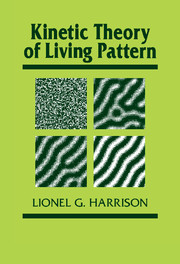10 - Approaching agreement?
Published online by Cambridge University Press: 22 September 2009
Summary
Là où je cherchais de grandes lois, on m'appelait fouilleur de détails. [Where I was looking for great laws, they called me a digger for details.]
—French-Canadian saying quoted by A. J. Libchaber at 13th International Liquid Crystal Conference, 1990, session on Pattern FormationHow precise a fit should one expect between experiment and theory at various stages in the scientific enterprise? Where experiment rests upon clearly established “great laws” (i.e., preconceptions or paradigms), one knows what to measure, and one may seek ever-higher precision, as in modern spectroscopy. When one is dealing with applied science, whether it be the clinical testing of a drug or the construction of an engine, precision is again of the essence. (I have heard it suggested that, conceptually, the Elizabethans could have devised a steam engine, but they had no lathes to give a good enough fit of piston to cylinder to make it work.)
It is quite a different matter when the “great laws” are not firmly established. How shall one improve the precision of measurements when one is not yet sure which properties may be the significant ones to measure precisely, and the worker in the next laboratory clearly has a different opinion on this? Major concepts have arisen from partially correct data. For instance, Dalton's atomic theory arose from the law of constant composition. The controversy between Dalton and Berthollet, with the latter maintaining that the composition of a compound by weight was variable, is very well known.
- Type
- Chapter
- Information
- Kinetic Theory of Living Pattern , pp. 298 - 338Publisher: Cambridge University PressPrint publication year: 1993



